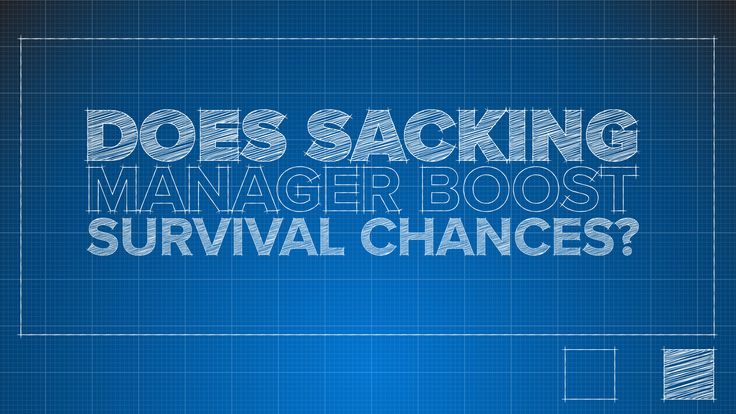Sheffield United sack Paul Heckingbottom: Does axing manager in relegation zone boost survival hopes?
Paul Heckingbottom guided Sheffield United back to the top flight by finishing second in the Championship last season; Blades sit bottom of the Premier League; Chris Wilder reappointed as manager on 18-month deal

Tuesday 5 December 2023 13:42, UK
Sheffield United have sacked Paul Heckingbottom after a humiliating 5-0 defeat to fellow promoted side and relegation battlers Burnley - but does axing a manager boost hopes for survival?
Heckingbottom leaves the Blades rock-bottom of the table with just five points from 14 games - winning only one game, drawing two and losing 11.
The 46-year-old has become the first managerial casualty in the Premier League this season, which is rare at this stage of a campaign. For context, there were 14 managerial changes last term.
- Transfer Centre LIVE! | Paper Talk
- Burnley 5-0 Sheffield United - Match report & highlights
- Get Sky Sports | Download the Sky Sports app
- Paul Heckingbottom expected to be sacked | Chris Wilder in talks to replace him
So, does sacking a manager while in the relegation zone boost the chances of survival come May?
Sky Sports scoured the archives to document every instance when teams have attempted exactly that, according to positions listed on Transfermarkt, and the eventual outcome to find out...
What are the chances?
In total, only 33 of 77 clubs survived after axing their manager in the drop zone - which equates to 43 per cent. That means clubs still have a 57-per-cent chance of relegation after axing a manager midseason.
All figures only include the first managerial change while in the relegation zone during respective seasons.
Of course, there are several other factors to consider, such as the position of the club within the relegation zone and what period of the season the managerial change occurred.
Starting with position, unsurprisingly, clubs are far better off axing managers before they hit rock bottom. Since 1995/96, when the league was trimmed to 20 clubs, teams changing manager when sat in 18th have a survival rate of 54 per cent, while teams in 19th have a 57 per cent chance.
However, that ratio plummets to just 15 per cent for teams axing their manager when sat bottom of the table.
What about time period? Well, the same mantra appears here too: strike early. The table below highlights how survival rates remain largely positive until the turn of the calendar year.
After this point, only three out of 24 clubs since 1992/93 have avoided the drop: Southampton (Ian Branfoot) in 1993/94, Aston Villa (Paul Lambert) in 2014/15 and Everton last season.
Clubs appear to know this, with the majority of changes occurring between October and December.
The chart below clearly visualises how the survival rate dips over the course of a season - with no club ever surviving after axing a manager while in the bottom three beyond the month of February.
The table below merges both position and time into one table since 1995/96 and emphasises the clear correlation between survival and axing a manager early while in 18th or 19th place.
In terms of Sheffield United's current predicament: no club has retained top-flight status after sacking a manager while rock-bottom after the month of October.
Winners and losers?
Tottenham achieved the biggest bounce in history after they sacked Juande Ramos in October 2008, hoisting from 20th to finish the season in eighth spot under Harry Redknapp.
In terms of clubs' historic success with the manager bounce during precarious times, Nottingham Forest might think twice about relieving Cooper of his duties, having previously sacked Frank Clark in 1996/97 and Dave Bassett in 1998/99 while in the bottom three over the past 31 years - suffering relegation both times.
In contrast, Everton - who sacked Frank Lampard while sat 19th in the table in January - have now retained their unbroken top-flight status all four times after axing a manager while in the relegation zone.
In summary, the chances of avoiding the drop following a managerial change after the turn of the year stands at just 13 per cent - regardless of position. In addition to acting early, clubs should make managerial changes before hitting rock-bottom.
What about promoted teams?
Ipswich were favourites for relegation at the start of the 2000/01 season after winning promotion via the play-offs, but finished in a remarkable fifth place, qualifying for the UEFA Cup and earning 66 points - merely one point shy of Liverpool's tally last season.
Derby County hold the unfortunate record of having the worst top-flight campaign since the current points system was introduced. The Rams collected just 11 points in 2007/08 after their promotion in 2007 and won only one game.
Tougher these days?
Since 1995/96, 36 of the 83 promoted teams have been relegated immediately - equating to a 57-per-cent survival rate.
With the strength of the traditional 'Big Six' and an established chasing group, all clubs at the bottom of the table have increasingly struggled to pick up points over the past 28 seasons.
As a result, the average number of points required to secure safety had dropped to just over 34 between 2016 and 2023 - down from closer to 38 between 1995 and 2002.
Does requiring fewer points help promoted teams survive? Well, Fulham, Bournemouth and Nottingham Forest all avoided the drop last term - the first time all three promoted clubs have survived since 2017/18.
The five-year rolling average for promoted clubs' survival rates suggests, currently, teams typically have a 50/50 chance of staying up.
Does promotion route hold clues to survival chances?
Unsurprisingly, Championship winners have the best survival rates with 64.3 per cent of champions proceeding to preserve their top-flight status for a second season running.
However, play-off winners (59.3 per cent) have had more success than runners-up (46.4 per cent) over the past 28 years.
Does spending secure survival?
Fulham splashed more than £100m on transfers to no avail in 2018/19, but large injections of cash have, historically, appeared to keep clubs up. In total, 22 clubs have recorded a net spend of £30m or more on transfers after winning promotion - only five of those were relegated (relegated clubs marked in red below).
Last season, Nottingham Forest registered a £173.25m net spend on transfers to successfully avoid the drop - more than any promoted side in history.
So clubs can buy success, but wise investment is key.
Attack or defence?
The graphic below shows how many goals every newly-promoted team scored and conceded during a season since 1995/96 and reveals their fate hinged far more on defensive robustness than attacking edge.
The majority of relegated sides conceded in excess of 60 goals, while a high proportion of teams that survived shipped totals below this threshold.
Newly-promoted teams typically score around 40 goals, regardless of whether they stay up - but the majority of teams that survive concede around 58 goals, compared with 66 for relegated sides. So, defence is key.
Home form key?
A classic case of utilising home advantage was Burnley in 2016/17, who mustered 33 points at Turf Moor but collected merely seven points on the road - and there are plenty more examples.
So, is home form essential for survival? The graphic below shows how every newly-promoted side winning at least 21 home points and just 14 away points has survived. So, home form does matter.
The bounce effect?
In total, 23 out of 83 promoted clubs have axed or lost their manager in the season after promotion - typically during the frantic festive schedule or towards the business end - but did those manager changes achieve the sought-after bounce effect?
Well, only seven of those 23 clubs stayed up after sacking their manager.
Those seven sides averaged just 0.34 points per game more after bringing in a new boss - but the swings in form can be significant.
Crystal Palace's form soared after sacking Ian Holloway in October 2013, with the Eagles going on to stay up - but Watford suffered a major dip after axing Xisco in October 2021 and were relegated.
Experience pivotal?
Experience is often considered an essential ingredient for survival, but our study reveals only a slight correlation between experience and survival.
Teams with average starting XIs aged between 25 and 26 fare worst with only a 40 per cent survival rate, but that ratio rises almost incrementally, with teams averaging at 29 years or older having the highest success rate of 66.7 per cent - albeit from a smaller sample size.
Can Sheffield United survive?
Sheffield United are on course to narrowly avoid being the worst team in Premier League history, with their projected tally - if maintaining their current points-per-game ratio - forecasted at 14 points. Derby registered only 11 in 2007/08.
A reasonable level of transfer investment this summer has, arguably, merely compensated for losing key players Iliman Ndiaye and Sander Berge, while the track record of teams promoted as runners-up could bite them.
Since 2016/17, teams have needed around 34 points to survive, on average - but that total could be lower this term with four clubs all sitting on fewer than 10 points and 14 games on the board.
However, Everton's form suggests the Toffees could break away from the troubled trio around them and the next best side, Nottingham Forest, on course to exceed that magic 34 number.
So, Sheffield United would need a manager bounce with an upturn on par with some of the very biggest in Premier League history, such as Crystal Palace's improvement after sacking Ian Holloway in October 2013 - which would see the Blades finish on 38 points.
Therefore, the Blades appear to be depending on a seismic upturn, coupled with their relegation rivals maintaining or dipping in form between now and May.
- Promotion route: Runners-up
- Projected points: 14
- Projected home points: 11
- Projected away points: 3
- Projected goals scored: 30
- Projected goals conceded: 106
- Average age: 26y 283d
- Net spend on transfers: £34.2m
What's next?
Sheffield United welcome Liverpool to Bramall Lane on Wednesday (kick-off 7.30pm). The Blades then host Brentford on Saturday (kick-off 3pm).





